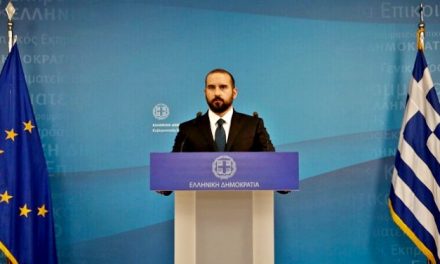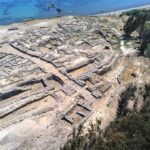The University of the Aegean and the UNHCR sub-office of Lesvos, with the support of the European Commission, launched on December 12, an educational program for online language classes for asylum seekers on Lesvos (Erasmus+ Online Linguistic Support).
Approximately 15 asylum seekers of different ages and nationalities from Moria, Kara Tepe and alternative shelters, participated in the first pilot session of the language program. Volunteer students from the University of the Aegean introduced the program to the participants, helped them with technical issues and addressed simple linguistic questions. Starfish Foundation offered valuable assistance in the the transportation of the participants to the session. By the end of the course, 1,000 refugees from Lesvos will have the chance to benefit from the online language classes. The program is expected to include 500 refugees from Chios and an additional 500 from Samos as well.
Astrid Castelein, Head of UNHCR’s sub-office on Lesvos, underlined that ‘with lengthy asylum procedures and overcrowded facilities it is important to organize activities for refugees that not only keep them busy, but provide them with the tools for the next step in their life. It is also a great opportunity for the asylum seekers to come closer to the locals’. Educational opportunities for children, but also adults, remains one of the main concerns for asylum seekers on Lesvos and this initiative is at the heart of efforts that reinforce local integration and livelihood prospects.
Alexandra Bounia, Vice Rector of Academic Affairs and Quality Assurance for the University of the Aegean, stated that ‘the University of the Aegean wishes to contribute in every way possible to the education of asylum seekers that are staying in our country and is planning to implement more educational activities in this direction, in collaboration with UNHCR, the Ministry of Education, the Ministry of Migration, the Municipality of Lesvos and other competent authorities’.
The Erasmus+ Online Linguistic Support is a European Commission project initially destined for students participating in the Erasmus+ exchange program, but was quickly extended to serve asylum seekers as well. The online classes are designed for people over 12 years old and can be accessed from any device that is connected to internet. Once the entire course is completed within 13 months, asylum seekers receive a certificate from the European Commission. Some 12 European languages are available, including English, French, Swedish, German and Greek.
Source: Online language classes for 1,000 asylum seekers on Lesvos













